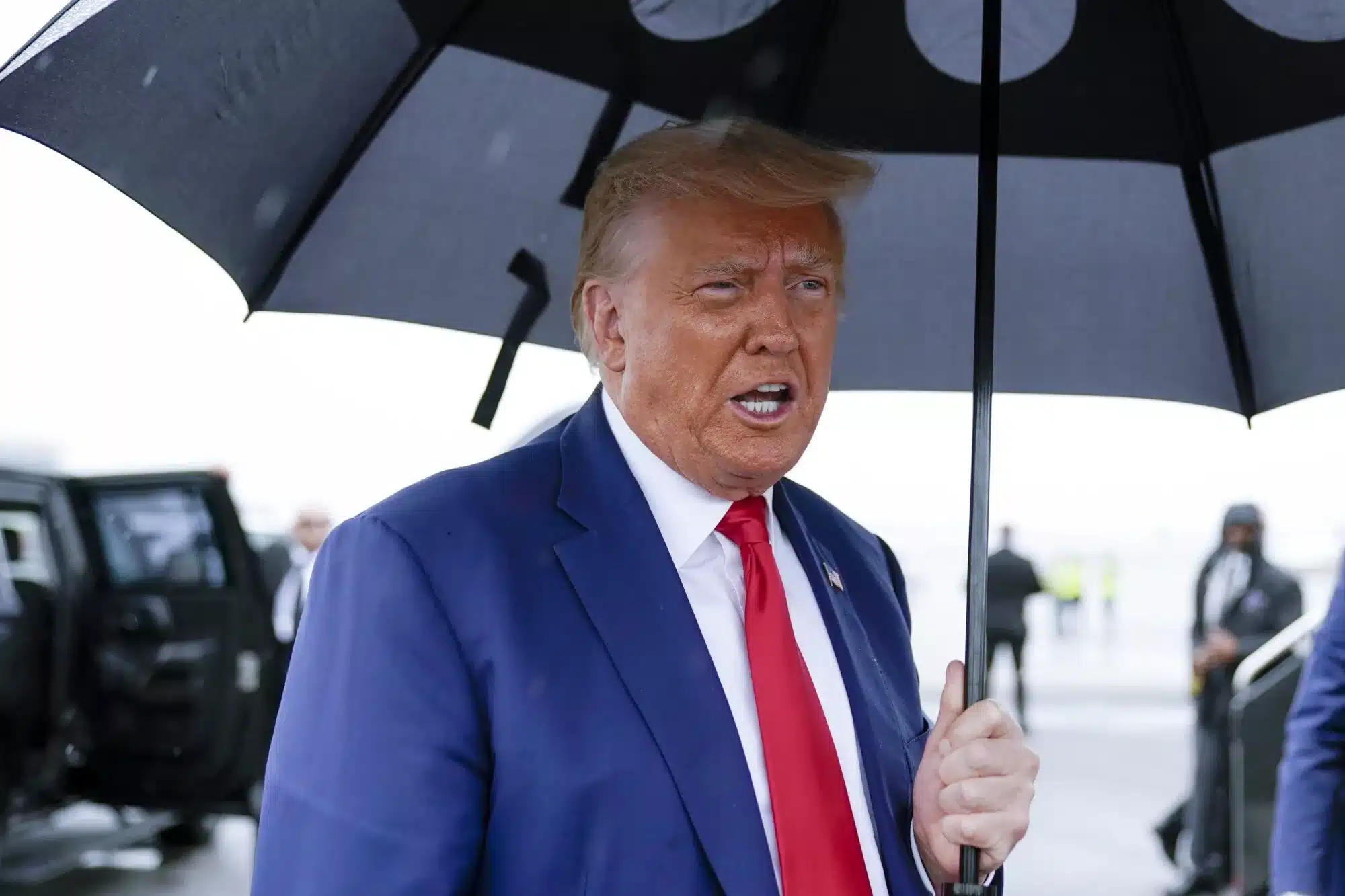This article first appeared on the Magnolia Tribune.


FILE – Former President Donald Trump speaks before he boards his plane at Ronald Reagan Washington National Airport, Aug. 3, 2023, in Arlington, Va. Special counsel Jack Smith’s team obtained a search warrant in January for records related to former President Donald Trump’s Twitter account, and a judge levied a $350,000 fine on the company for missing the deadline to company. That’s according to court documents released Wednesday. (AP Photo/Alex Brandon, File)
The Special Counsel prosecuting the former President had sought to circumvent lower court proceedings and instead have the Justices make a determination. That request was denied without comment on Friday.
Earlier this month, Special Counsel Jack Smith asked the U.S. Supreme Court to rule on whether a former President is absolutely immune from federal prosecution for crimes committed while in office or is constitutionally protected from federal prosecution when he has been impeached but not convicted before the criminal proceedings begin.
Smith is pursing the prosecution of former President Donald Trump for his alleged role in seeking to overturn the 2020 presidential election. In his writing to the Supreme Court, Smith said that Trump is “not being prosecuted for publicly contesting the results of the election; he is being prosecuted for knowingly making false statements in furtherance of a criminal conspiracy and for obstruction of election certification proceedings.”
Trump’s legal team asserts that his questioning the election results was in the “outer perimeter” of his official capacity as President, thus he is subject to presidential immunity. In addition, Trump was acquitted by the U.S. Senate during his impeachment trial in the chamber.
On Friday, the high court’s docket revealed that the Justices are, at least for now, steering clear of the political firestorm. Smith’s request for an expedited hearing at the Supreme Court was denied without comment.
READ MORE: Special Counsel asks SCOTUS to rule on whether Trump can be prosecuted
The decision not to intervene by the U.S. Supreme Court means the U.S. Court of Appeals in D.C. will take the issue up at its scheduled hearing on January 9, 2024 – less than a week before the Iowa Caucuses and the official start of primary voting in the 2024 presidential election cycle.
Earlier this week, the Colorado Supreme Court ruled that the former President is disqualified from holding office again, removing him from the state’s Republican Primary ballot. The justices cited the Section 3 of the 14th Amendment – the insurrection or disqualification clause – as justification for their decision. Trump’s legal team immediately said they were appealing that ruling to the U.S. Supreme Court.
Colorado voters head to their polls on March 5th, but to be on the state’s ballot, officials said the matter needs to be settled by January 5th.
Trump, also facing three other criminal prosecutions currently making their way through the courts in other state jurisdictions, is currently the frontrunner among those vying to be the Republican nominee for President.
According to FiveThirtyEight’s latest national polling average among Republican voters, Trump is sitting at 62% with Florida Governor Ron DeSantis at 11.9% and former U.N. Ambassador Nikki Haley at 10.8%.
This article first appeared on the Magnolia Tribune and is republished here under a Creative Commons license.
Read original article by clicking here.

